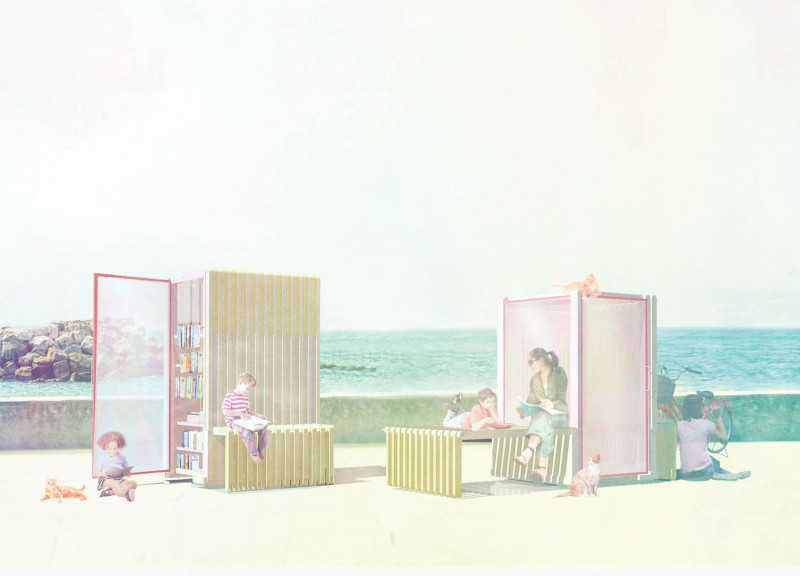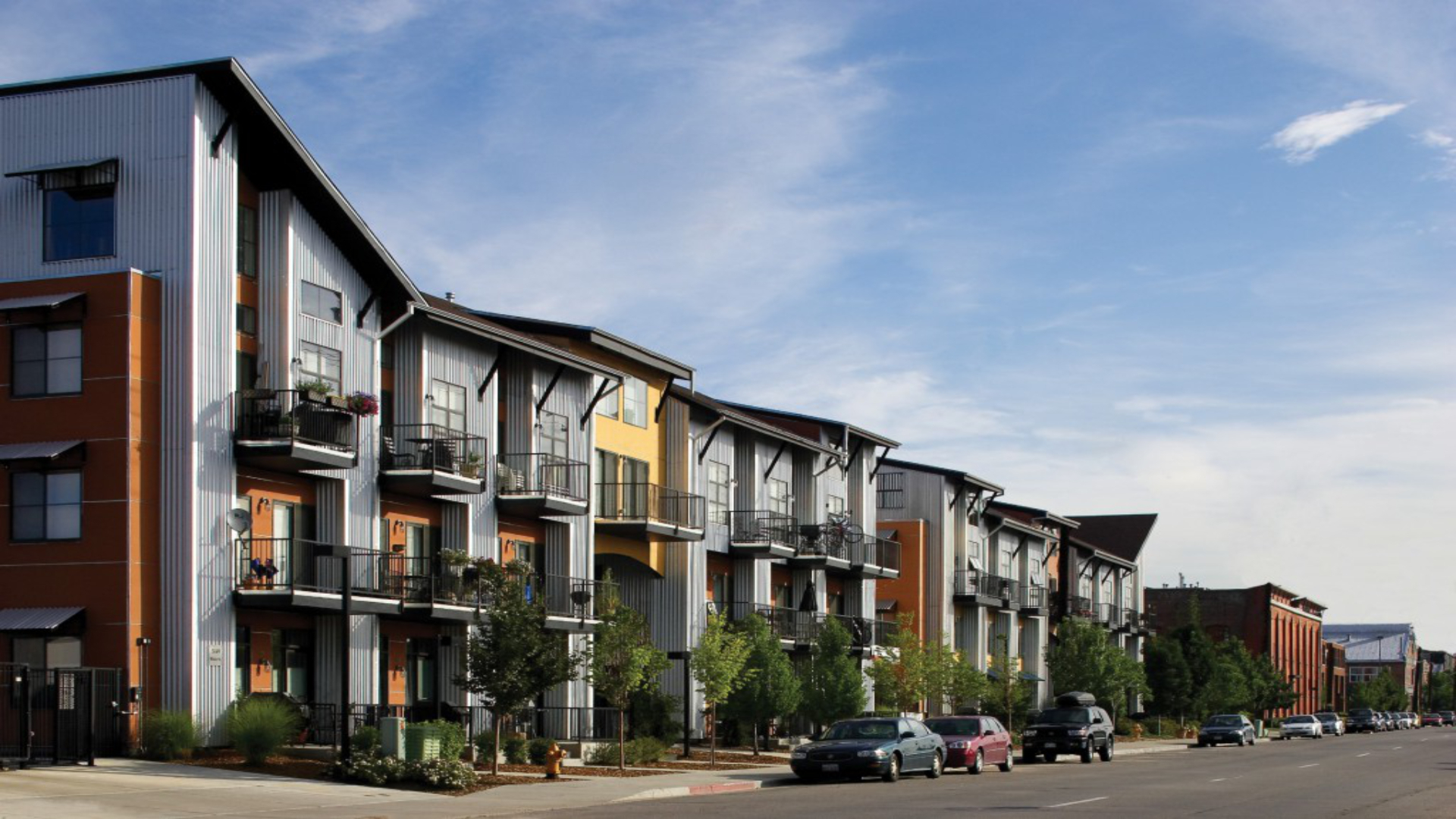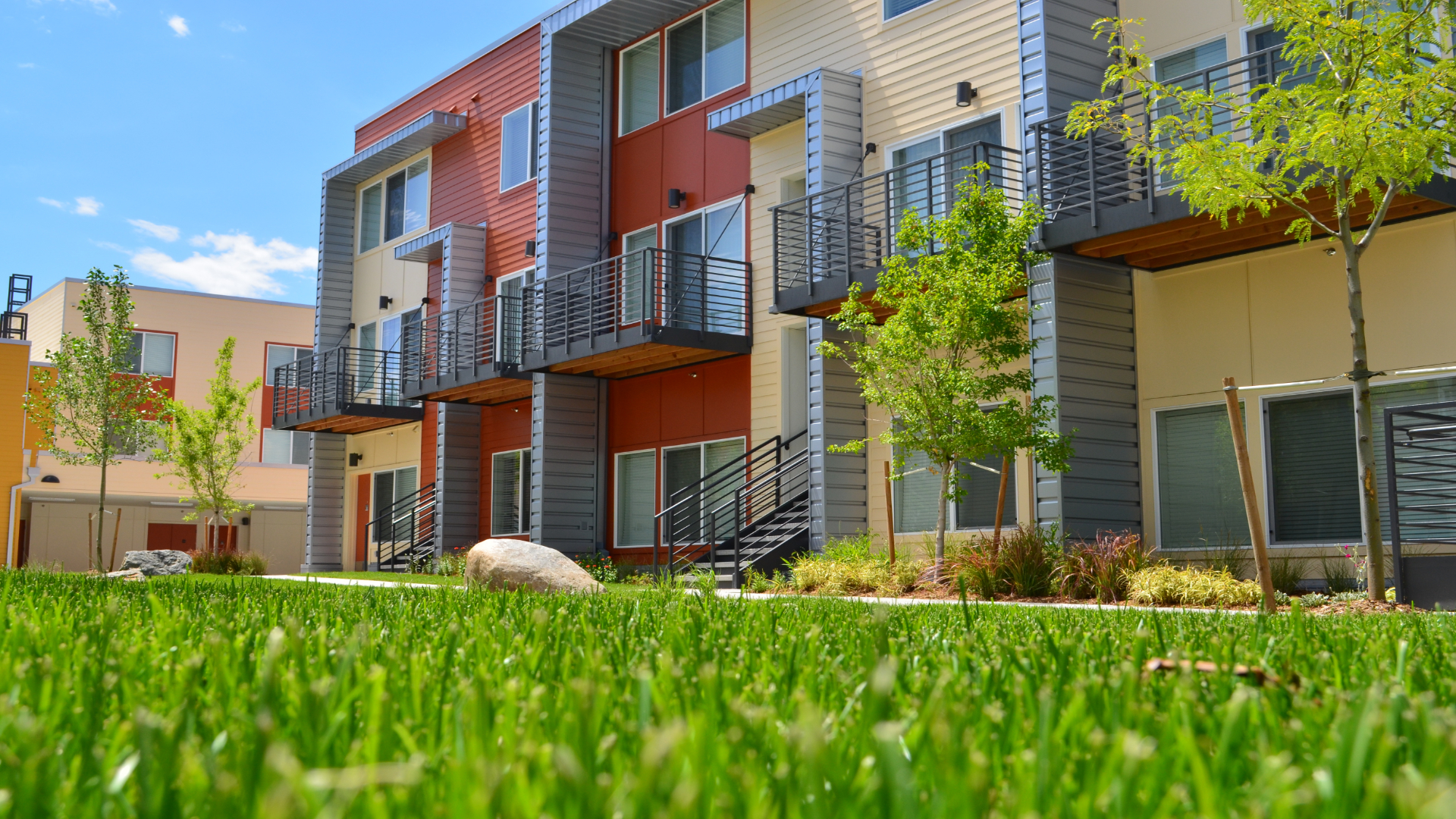5 key facts about this project
Flip is a portable reading space that integrates with urban settings. It combines the concept of a book with functional design. It allows for various activities, such as reading, socializing, and resting, all while being easy to move around. This flexibility makes Flip suitable for a range of public environments.
Design Concept
The design emphasizes mobility and user participation. Flip is constructed as a self-supporting unit made of pre-cut components, allowing for simple on-site assembly. This modular nature ensures that it is light and easy to transport. The presence of pink wheels accentuates its ability to be repositioned, enabling users to adjust its location according to their needs within the city.
Functionality
At its core, Flip serves multiple purposes. It can act as a bookshelf, bench, bike rack, bed, or sheltered meeting spot. This range of functions encourages people to come together, share ideas, and immerse themselves in books. The design aims to create an inviting environment where individuals can comfortably interact with each other and the space around them.
Materials and Sustainability
Flip primarily utilizes wood, which supports a focus on sustainability. The choice of wood highlights its reusable and biodegradable properties, aligning with current environmental practices in design. This material provides a warm and welcoming aesthetic, making the space inviting. Such choices enhance the user experience and contribute to a thoughtful approach to environmental impact.
Visual Identity
Bright colors and a book-like form give Flip a distinct visual identity. This design helps the space stand out in public areas. Its eye-catching design encourages curiosity and exploration, making it a recognizable feature in urban settings. Flip not only serves functional needs but also adds character to the landscape, promoting community engagement and creativity.
The thoughtful combination of practical features with a welcoming design creates a space that encourages users to read, connect, and share experiences.





















































